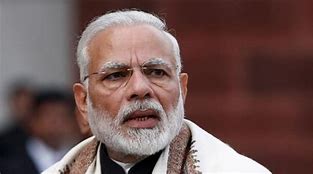World
Sri Lanka warns of worst drought in 40 years
 Colombo: The Sri Lankan government declared a state of alert in response to what is already considered the worst drought in four decades, implementing measures such as water-use restrictions. Steps taken by the government of President Maithripala Sirisena in recent days included deploying soldiers, establishing a presidential commission and urging the population to be prudent in the consumption of water, Efe news reports.
Colombo: The Sri Lankan government declared a state of alert in response to what is already considered the worst drought in four decades, implementing measures such as water-use restrictions. Steps taken by the government of President Maithripala Sirisena in recent days included deploying soldiers, establishing a presidential commission and urging the population to be prudent in the consumption of water, Efe news reports.
The National Water Supply and Sanitation Council warned on Sunday of the need to rationalize the consumption of drinking water, as the currently available reserve is only expected to last for two months. Alahudeen Ansar, the head of the council, said that drinking water demand had increased by 15 per cent and that measures have already been taken to restrict its use in many areas of the 13 affected districts.
Sri Lankan authorities have expressed concern that the situation may lead to social instability in a country where 31.8 per cent of its 22 million inhabitants directly depend on agriculture for their livelihoods. The Deputy Minister of Provincial Council and Local Government, Karunarathna Paranawithana, said on Saturday that there had already been rumours about farmers are threatening to open water reservoirs to access the vital resource.
The situation led President Sirisena this week to appoint a presidential task force with the participation of key ministries and secretaries of state to take action to tackle the problem after the Department of Meteorology said on Friday that the country was facing the worst drought in 40 years.
World
Lockdowns in China Force Urban Communities to Defy Censorship and Vent Frustration Online

Shanghai’s rich middle class is leading a wave of online dissent over the strict and prolonged lockdowns imposed in various parts of the country. Chinese internet censorship is struggling as patience is wearing thin in many urban centers, coming up with creative forms of online protests.
Social Media Posts Revealing Lockdown Tension in Shanghai
Drawn-out lockdowns are nothing new in China as authorities insist with the nation’s zero-Covid policy since the start of the pandemic. Currently over This time around, however, metropolitan areas like Shanghai are increasingly difficult to keep quiet, given that its more than 25 million residents have seen weeks of total isolation along with food shortages and many other service interruptions.
Dozens of towns and reportedly over 300 million Chinese citizens have been affected by lockdowns of different severity. As expected, urban netizens have been most outspoken over their difficulties by finding creative ways to get around state censorship and bans placed on topics, news comments and spontaneous campaigns.
Shanghai residents have been using mobile proxies and hijacking seemingly unrelated hashtags to talk about healthcare issues, delivery failures and the overall severity of their situation. The “positive energy” that the Chinese government wants to transmit during the recent prolonged series of lockdowns does not come naturally to those counting food supplies and online censors are working hard to filter words, trending topics and undesired social media sharing.
WeChat groups and message threads are under constant monitoring. Posts questioning the zero-Covid approach have been quickly deleted, including by leading Chinese health experts like Dr. Zhong Nanshan. Video footage is soon censored and protests and investigations are quickly made to disappear.
Where this has not worked, officials have exposed banners with warnings and outright threats like “watch your own mouth or face punishment”, while drones have been patrolling the city skies. Yet, if anything, this has led to further tensions and unspoken confrontation with Shanghai’s educated and affluent middle class.
Creative Online Solutions Harnessing Civic Energy
Announcements by Chinese social media that they would be publishing the IP addresses of users who “spread rumors” have not helped either. Tech industry research has shown that much of Asia’s tech-savvy population has a habit of using mobile proxies and other privacy tools, quickly finding workarounds to browse the internet freely and talk to the world about the hottest topics.
The sheer volume of forbidden posts is already a challenge for the very censorship system, experts explain. Unable to track all trending hashtags, state workers overlook topics that speak about the US, Ukraine or other popular news. Linking human rights elsewhere to their situation, Chinese online dissidents establish their informal channels and “hijack” the conversation to share personal or publicly relevant information about the Covid suppression in their town.
Sarcastic and satirical posts still dominate. Others hope to evade the censors by replacing words from famous poems or the national anthem. One thing is certain – social media, when harnessed with the right creativity, has proven its ability to mount pressure on the government in even some of the most strictly controlled tech environments like China.























